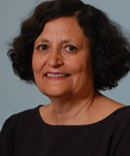 Author: Rochelle Cooper Dreyfuss
Author: Rochelle Cooper Dreyfuss
Abstract: The Special Rapporteur in the field of cultural rights is tackling the difficult task of reconciling the provision in the Universal Declaration of Human Rights recognizing that “Everyone has the right to the protection of the moral and material interests resulting from any scientific, literary or artistic production of which he is the author” with the right “to participate in the cultural life of the community, to enjoy the arts and to share in scientific advancement and its benefits.”
The Copyright Report, which has already issued, maintains that the harder question is reconciling moral rights with public access interests because material interests can be satisfied in ways that do not require copyright protection. In contrast, moral rights pose a difficult question because authorial interests in the integrity of the work clash with society’s interest in commenting, parodying, and transforming the work to other needs.
In this paper, which was prepared for a workshop on human rights and technological advancement, I suggest that in the scientific realm, it is material interests that are the more problematic. In this sphere, society must certainly interact with existing works — but there is less of the inventor in the work and accordingly fewer moral interests to protect. At the same time, however, society is crucially concerned with the development of future technologies; inventions that can tackle such issues as terrifying diseases, drastic climate changes, and threats of terrorism. Patent rights are not the only way — or even a sufficient way — to promote these developments. But the material interests protected by patents are important enough to require the Rapporteur to consider how to promote the right to share in scientific advancement within the framework of a globally coordinated patent regime.
Citation: Dreyfuss, Rochelle Cooper, Patents and Human Rights: The Paradox Reexamined (September 1, 2015). C. Geiger (ed.), Intellectual property and access to science and culture: conflict or convergence?, CEIPI-ICTSD Publication Series on Global Perspectives and Challenges for the Intellectual Property System, Issue 3, Geneva/ Strasbourg, 2016 (forthcoming); NYU School of Law, Public Law Research Paper No. 15-35.
Full Text on SSRN: http://papers.ssrn.com/sol3/papers.cfm?abstract_id=2654301




